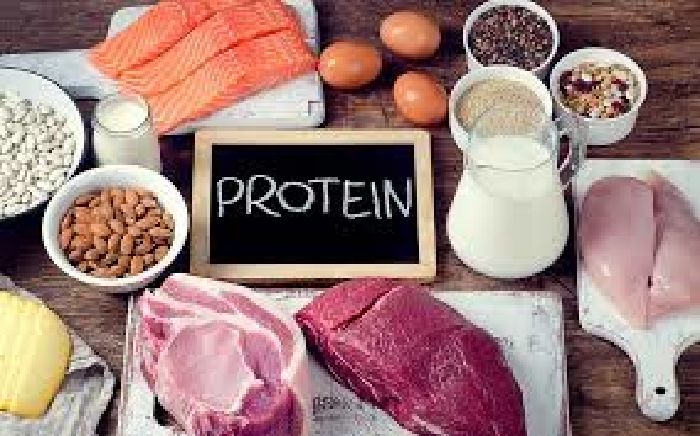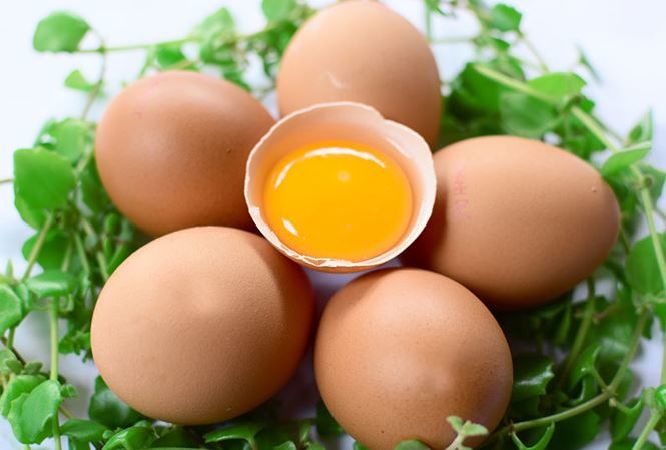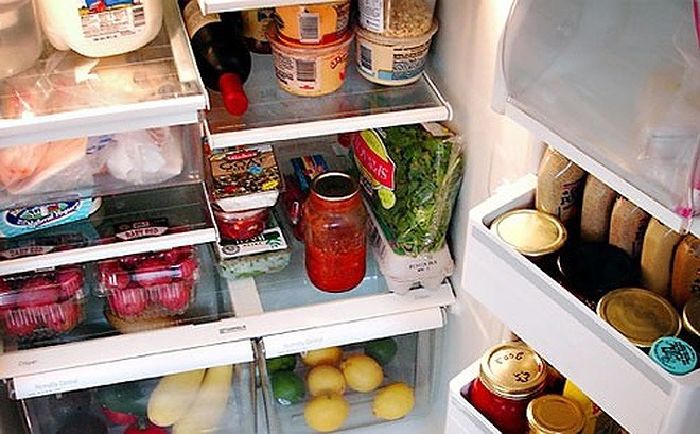Top 10 misunderstandings about nutrition
In the current era of 4.0, people have access to a lot of information, but not everyone knows how to select information. There has been a lot of information about misleading nutrition that causes readings to follow and adversely affect health. Or simply word of mouth with stories from old times like eating bad fat or not skipping breakfast ... So top nutrition myths will help you know what people are making nutrition ideas.
1
Protein is not good for bones and kidneys

People often blame carbs and fats for various health problems. But even protein is not spared. The media often claim that protein is harmful to bones and kidneys.
Please handle both statements above.
A higher protein diet has shown a higher amount of calcium in the urine. There are two reasons given to explain this phenomenon.
The body draws its reserves of calcium (from bones) to deal with the level of acid generated from proteins. This suggests that high protein intake may lead to osteoporosis
Most studies on protein intake and calcium excretion have dairy products as a source of protein. So high levels of calcium in urine may be due to higher calcium intake (high intake, high intake). So just looking at calcium levels is not enough. Subsequent studies have shown that protein promotes calcium absorption, and a high protein diet will "promote bone growth and slow the process of osteoporosis, while a low protein diet will lead to a risk." higher hip fracture ”. Current evidence suggests that protein is actually harmless or even protects bones.
Other studies have determined that a high protein diet increases glomerular filtration rate (GFR), an indicator of kidney waste filtration. It has been argued that an increase in GFR is a sign of kidney stress, but subsequent research has shown that kidney damage is not caused by a high protein diet.
In summary, randomized trials did not show the effect of protein on the bones or kidneys of healthy adults.
Fact: Protein, even in large amounts, does not harm bones or kidneys (unless you have a medical condition).
2
Carbs are not good for you

Myth 2: Carbs are not good for you
For decades, fat was viewed as an enemy; Today, carbs become new victims. A bad reputation for carbs and insulin is becoming more common.
Many believe that the GI (glycemic index) and insulin index rank foods according to their "unhealthy" levels. However, research on diets with low GI indicates neutral or insignificant results, even for diabetics. Moreover, a low GI diet does not show superiority compared to other diets.
Similarly, the carbohydrate-insulin model of obesity, which suggests that obesity is caused by carbs and the insulin reaction that carbs produce, has no scientific evidence. In 2017, a meta-analysis of 32 controlled studies was published. In each study, meals were provided, to ensure that each diet would have enough calories and nutrients for each person (in each study, the calories and protein levels were equal but The amount of fat and carbs is different.) So what is the result? These studies help us understand the weight loss mechanism. A low-fat diet will result in greater fat loss (average of 16 grams a day) and greater energy consumption (average of 26 calories per day). Thus, a low-fat diet will have the advantage of reducing fat, although this advantage is still not physiologically significant.
These results are consistent with long-term studies on low-carb or keto diets. The meta-analyzes showed no significant difference compared to the high-carb diet.
Cutting back on carbs (especially processed carbs) can be beneficial, if that helps you eat healthier. But if cutting carbs makes your diet worse, or making you feel worse, or you can't follow it, then you should consider other options. If you want to lose weight, it's important not to replace fat with carbs or carbs with fat, but the daily calorie deficit.
Fact: Carbohydrates are not inherently harmful. As long as you don't eat too much.
3
Egg yolks are not good for you

One thing that the media is so good at, is that it keeps you away from completely healthy foods.
Eggs have a bad reputation due to its yolk, which is rich in nutrients, including lots of cholesterol. In fact, for most people, eating cholesterol-rich foods is not closely linked to an increase in blood cholesterol levels.
In clinical trials, no link was found between eggs and cardiovascular disease, except in people with pre-existing conditions such as diabetes or hyperglycemia.
Fact: Eggs are a good source of protein, fats, and other nutrients. Its association with high cholesterol and cardiovascular disease has been greatly exaggerated.
4
Salt is not good for you

Some misunderstandings stem from the truth. Studies have found a link between too much salt and high blood pressure, kidney damage, and an increased risk of cognitive decline.
Salt (sodium) is basically an important mineral for health. The problem is when you eat too much sodium and too little potassium (potassium).
Another problem is which food sources the salt comes from. The average North American consumes a large amount of processed food - meaning people who consume a lot of salt tend to consume unhealthy foods. Therefore, it is difficult to clearly distinguish the effects of salt from the effects of the entire diet. Except for people with salt-sensitive hypertension, the evidence supporting low sodium intake is not conclusive. To date, both high and very low salt levels have been linked to cardiovascular disease.
The Truth: Reducing salt is important for people with salt-sensitive hypertension. Eating too much salt will cause harm. But eating too little salt did not show a consistent benefit in clinical trials. Most people will benefit more from eating natural foods than to control their salt intake.
5
Fresh foods contain more nutrients than frozen foods (fruits and vegetables)

Fresh produce is more appealing to many. It sounds better than "canned" or "frozen" stuff. But "fresh" food doesn't mean it's more nutritious.
Fresh produce is defined as something that "ripens after harvest" (if it ripens during transport) or is "ripened" (harvested and sold when ripe: for example, at an agricultural market, or at a fruit stall on the roadside of farmers).
Frozen produce is usually ripe as a whole before being treated to a minimum before freezing. Most fruits and vegetables will be blanched in hot water for a few minutes before freezing, with the aim of inactivating the enzyme that can cause adverse changes in color, taste and nutritional value.
There are several differences between fresh and frozen foods and certain nutrients found in certain fruits and vegetables. But overall, their nutritional value is similar.
Fact: There may be some nutritional differences between fresh and frozen foods, the overall difference is small. Choose according to your taste, budget and lifestyle.
Suitable for you
01-07-2023 cookie
10-06-2023 cookie
07-06-2023 cookie
19-05-2023 cookie
